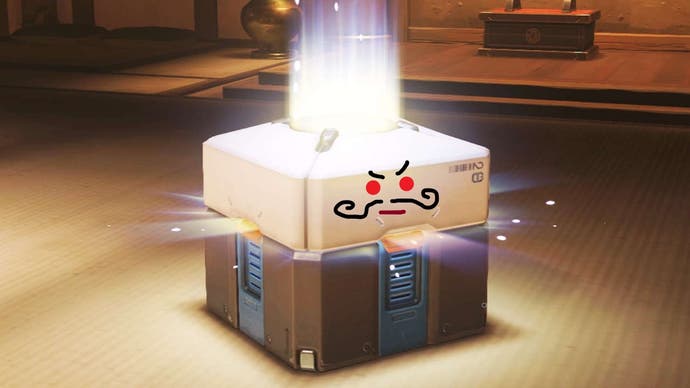18 European countries call for better regulation of loot boxes following new report
Which takes aim at the likes of FIFA 22 and Raid: Shadow Legends.
A new report commissioned by the Norwegian Consumer Council has concluded that loot boxes in games are "exploitative and predatory."
Consumer protection agencies in 18 European countries have backed the report and called for better regulation of video games.
The report uses both FIFA 22 and Raid: Shadow Legends as case studies to demonstrate the "wide arsenal of tricks to push consumers into spending as much time and money as possible exploiting consumers hope to receive the reward despite a miniscule chance and likelihood to do so".
With respect to FIFA 22, the report highlights the allegedly exploitative nature of FIFA Ultimate Team which encourages players to obtain packs using FIFA Points or Coins, the former of which can only be purchased usung real money.
The report cites Eurogamer's extensive coverage of this very issue here and here. Last year, Wesley Yin-Poole interviewed EA Chief Experience Officer Chris Bruzzo on the inclusion of loot boxes on FIFA.
On Raid: Shadow Legends, the report describes the game as a gacha game which does "continuously encourage and push players to spend money and/or in- game currency to receive random virtual items".
The report also highlights the aggressive forms of in-game marketing, deceptive design and "dark" patterns which encourage players to spend as much money as they can.
It concludes with a number of specific recommendations for policymakers, including banning desceptive design practices, listing all in-game purchases in real-world currency, banning loot boxes in games likely to be played by minors, greater transparency into the algorithms and datasets used in lootboxes, and better enforcement by consumer protection agencies.
In Europe, the regulation of lootboxes will likely fall on the European Union rather than individual member states.
As for the UK, the government did open a public consultation on loot boxes in 2020, but has yet to make a decision based on the outcome of the consulatation.


















